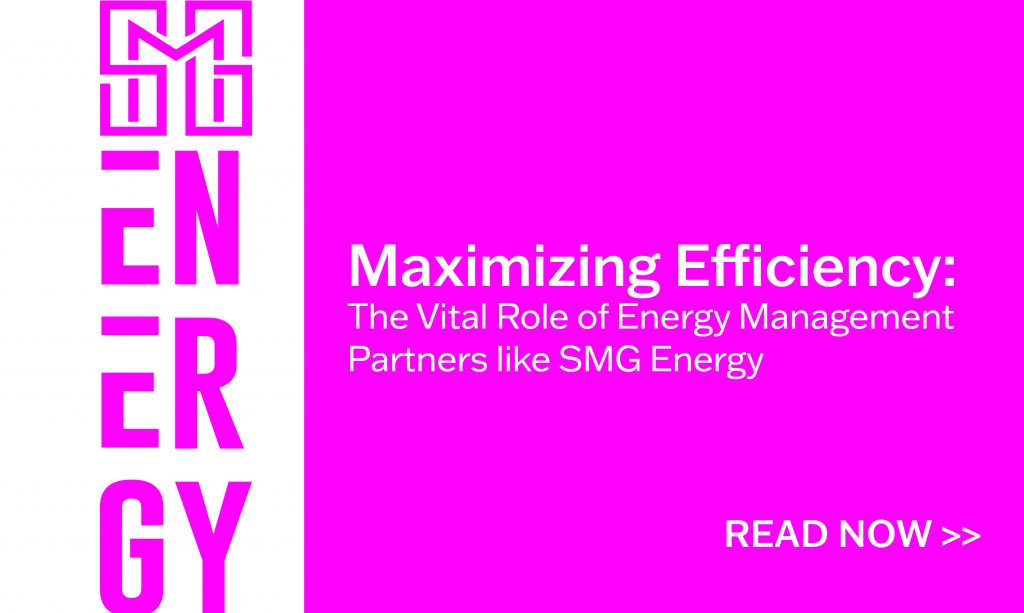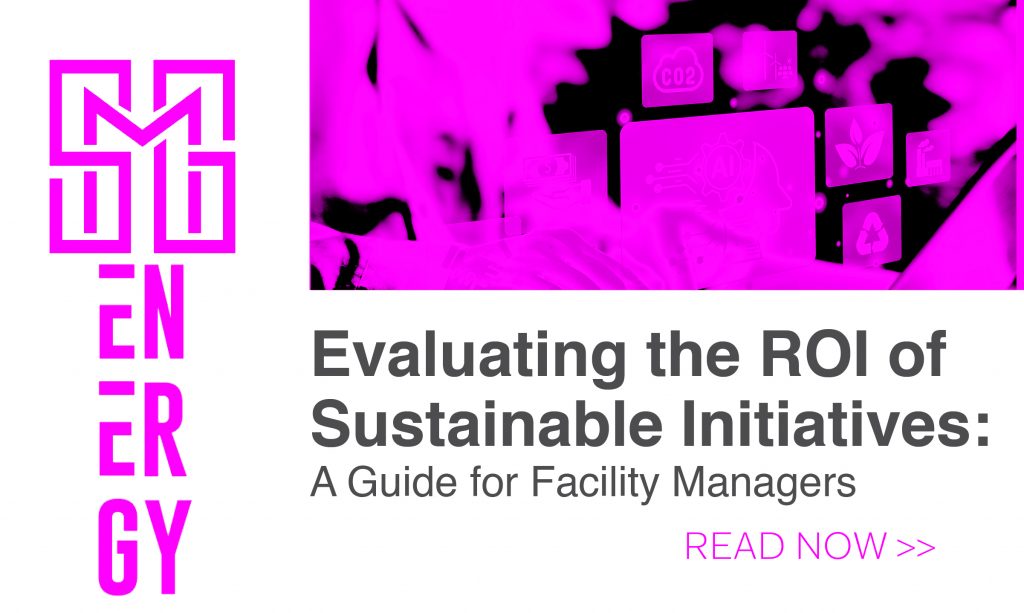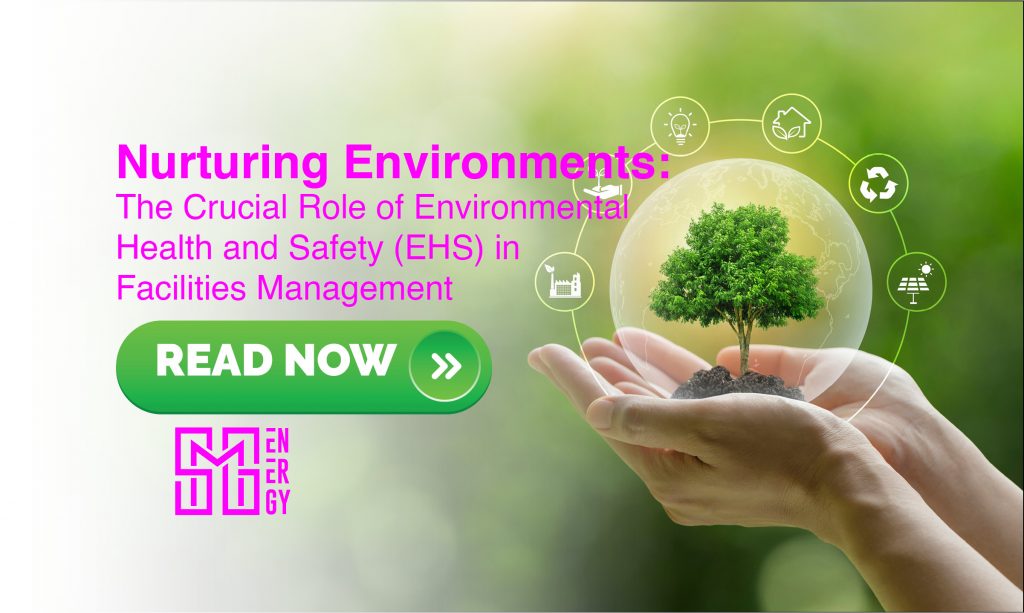Regardless of where you might fall politically, ESG and the concept of ESG facilities management is making its presence felt and will continue to gain momentum year after year. With it still being a relatively new concept that is clearly gaining support, there are plenty of ways a partner can help your company reach ESG goals with offerings geared toward energy efficiency and reduction. Let’s delve into what ESG means, why it is important, how facilities management affects it, and what a partner can do to help solve your ESG concerns.
What is ESG?
The letters in ESG stand for environmental, social, and governance. ESG investing is a set of behavior standards for a company that socially conscious investors use to screen potential investments. Part of a responsible investment movement, these investors are concerned not just about how much money a company makes but also about its actions to reach and maintain high ESG standards. Here is a deeper look at what the three criteria mean.
Environmental Criteria
Environmental criteria are how a company safeguards the environment, including areas such as corporate policies that address climate change and an ecological footprint. In other words, is the company acting as a steward of nature? Core issues include:
- Whether and how much the company is consciously trying to reduce greenhouse gas emissions (GHG)
- Is the business making an effort to try to cut back on the usage of water, which is becoming a more precious resource yearly as droughts continue?
Other environmental issues include energy use, waste, and the treatment of animals. Success in these areas leads to higher ESG facilities management ratings and makes a company more appealing to ESG investors.
Social Criteria
The focus of social criteria is how a business manages relationships with employees, suppliers, customers, and the surrounding community. Key aspects range from labor standards to health and safety practices to its treatment of clients and customers. Socially responsible investing (SRI) also figures into this criteria. ESG investors seek companies that promote ethical and socially conscious themes such as diversity, corporate ethics, and social justice. Also considered are how involved a business is in community outreach and opposing all forms of discrimination.
Governance Criteria
The main focus of governance criteria is on the integrity of the business and its leadership. The fundamental standards are that a business has transparent accounting methods, pursues diversity in selecting leadership, and is accountable to shareholders. It also adds weight if companies are following anti-corruption measures in all areas, including at the highest level, such as:
- Avoiding conflicts of interest in their choice of board members and senior executives.
- Ensuring that leadership decisions are free of any political influence.
Why Do Corporations Care About ESG?
Changes brought about by ESG can make the world a better place in many ways — in the environment, in diversity, in society, in community, and integrity. But there are other ways ESG facilities management and investing can make a big difference for a business. Here are five of them.
1. Procuring Relationships with Diverse Business Partners
Organizations and companies now seek diverse partners and suppliers with substantial ESG credentials. For instance, in a recent CDP Supply Chain program members poll, almost 3 out of 4 companies said they expect to deselect suppliers based diversity as well as inadequate environmental performance. Companies that want to collaborate with business partners must take ESG issues seriously. Adding more support to ESG, a 2021 executive order calls on the Federal Acquisition Regulatory Council to consider requiring companies to include climate-related information for all federal procurement decisions, with a preference list of the bids and proposals created based on that information.
Sustainability-led Innovation Helps Strengthen Customer Relationships
Even though the reduction of their carbon footprint may be slight for some companies, it creates a more significant impact by working with products and customers doing the same to curtail that carbon footprint further. Coming up with solutions to help customers meet those goals is a keen move because almost every large business is looking to its suppliers and partners to help to expand that sustainability story. That kind of commitment to assisting, in turn, makes the business relationship stronger. By integrating ESG, companies gain insight into the risks and opportunities associated with ESG facilities management issues, allowing them to enhance their business models to pull in new opportunities.
Increasing the Ways to Connect with Consumers
Customer connection is an area where companies fall short because polls show ESG concerns clearly influence consumer purchasing decisions. Deloitte’s Global 2021 Millennial and Gen Z Survey found that ESG issues are among the top concerns for Generation Z and millennials. More than 3 out of 4 consumers are changing their purchase preferences based on these issues, a 2020 Capgemini Research Study indicates. To prove their worth, companies need to ensure consumers know their ESG innovations and promote the fact that ESG is a central part of the company’s mission and woven into its business strategy.
Gaining the Upper Hand on Attracting & Retaining Employees
When CEOs make ESG a priority, that can relay a solid signal to employees and future workers that the company is committed to a purpose beyond profits. With the current intensified labor market, that can be the difference between a new hire and continued searching. As one senior executive from the family-owned business put in the 2022 C-suite survey from The Conference Board: “We see our ESG commitment as a competitive differentiator for our labor pool. We have been very purposeful in communicating our strong commitment to sustainability to prospective and current employees, and we are finding that prospective employees want to come to a company with a purpose.”
Assuring Accessibility to Other Markets & Capital
Europe will soon enforce regulations requiring all large companies to disclose ESG data under the Corporate Sustainability Reporting Directive. In the United States, the SEC is also considering introducing rules that scrutinize “sustainable” or “green” funds. If these rules get introduced, ESG regulation will be increasingly relevant for private companies, and businesses that are proactive and prepared for these regulations will be at an advantage. ESG is also impacting the lending front, which is pivotal in attracting capital on preferential terms. Many lenders are increasingly adopting ESG screening policies.
How Does Facilities Management Impact ESG?
Incorporating ESG into a business can be a complex matter because those changes must be made while still maintaining the business operates appropriately. That’s where ESG facilities management becomes crucial. With buildings and construction contributing nearly 40% of global carbon emissions, the person in charge of a company’s buildings (aka facilities), will need to make significant adjustments to get to net-zero emissions yet still not affect the operations that keep the business running smoothly. Optimizing facility operations and managing space requirements are keys to making that more negligible environmental impact. Future considerations will also shape plans to reduce the ecological footprint, taking into account such things as:
- Preventive maintenance
- Long-term planning
- Fleet management
- Move management
- Short-term space reservations
ESC criteria might seem like an added burden and expense for those running facilities management, but the consequences of failing to adhere to ESC are likely to be severe. One day, facilities managers will probably have to deal with oversight agencies such as the Department of Energy and the Environmental Protection Agency. Failure to consider ESG facilities management will inevitably lead to higher operating expenses, if not the assessment of fines and penalties.
How a Good Partner Helps With ESG Goals
With so many areas affected by ESG goals, it seems prudent to have a knowledgeable partner to help you through the process. The excellent organizational skills of a partner can help you start a plan and stay on track for a coordinated sustainability transformation. They can also provide ideas on how to reach those goals, like offering electric-vehicle charging stations as an initiative to install them in your parking lot. Not only that, but a partner can help a business strategize when it comes to projected progress and challenges. And when technical concerns arise, a partner can offer expertise on solutions and actionable steps.
SMG Energy Can Be the Partner for You
ESG has become a part of how businesses operate, and it takes a great deal of work to incorporate the new criteria and still have a business flow that remains successful and profitable. As a leader in the sustainability transformation sector, SMG Energy can be the partner that helps maintain that flow and guide the transformation to ESG frameworks at speed and to scale. SMG has developed proven strategies that help prepare you for a long-term transformation, concise and transparent reporting tools to keep you up to date, and science-based goals and insights to determine best practices for ESG success. Our unique cloud-based software platform looks at your organization’s energy and facility patterns and helps you discover a better, more efficient path to using energy. For a free energy assessment, visit our website.





